Radical Markets: Uprooting Capitalism and Democracy for a Just Society
by E. Glen Weyl & Eric A. Posner
We spoke to Glen Weyl, one of the authors of Radical Markets, about the book, how his thinking has evolved, and what’s happened to their ideas in the real world since the book was published in May, 2018.
Five Books review
In the early days of economic science, in the 18th and 19th centuries, a lot of work went into analysing and attacking vested interests, monopolistic arrangements that enabled the rich to live lives of idleness while enjoying the unearned rents from their estates, mines and factories. This intellectual and political work was known as “radicalism”, as it sought to take an axe to the root of society’s economic and social ills.
In Radical Markets Eric Posner and Glen Weyl self-consciously raise again the standard of “radicalism”, both in the sense of going to the root of society’s ills and proposing solutions that are transformative. They argue that the global economic system is, once again, dominated by monopolistic practices and vested economic and political interests. The system is rigged. Inspired by the approach of their 18th and 19th century forebears, they suggest a range of reforms that will de-rig the system, thereby transforming the global economy, dramatically improving productivity, increasing economic equality globally and making democratic systems more responsive to voters’ preferences.
The book’s five chapters cover: ideas for completely reforming how we think about property, by requiring it to be taxed (and transferred) at a self-assessed value; reforming voting systems by allowing voters to increase their influence on issues they care most about and allowing the expression of negative as well as positive opinions; improving global labour markets by dramatically increasing immigration (and, effectively paying poorer people in developed countries to sponsor immigrants from less developed countries); improving corporate governance through limitations on the cross-ownership of different companies within the same industry by asset management companies; and making the Googles and Facebooks of the world pay their users for data.
Posner and Weyl are clear that their book does not constitute an “oven-ready” policy programme, for immediate implementation. They acknowledge that policies they advocate will have to be tested and would require appropriate regulatory and supervisory regimes. Nevertheless, they deliberately follow the logic of their position to its logical conclusions, rather than what might be politically feasible right now. That helps to highlight the “radical” potential of what they are advocating and also throws into sharp relief the shortcomings of current practice. Their arguments about how current arrangements are delivering unnecessary poverty, inequality and waste are persuasive.
In fact, on the whole, the solutions offered do not seem wildly impractical and in some important areas, such as opinion polling, they are already getting traction. In others, such as the management of some commercial assets, or elections by political parties of candidates for office, it is easy to imagine how immediate improvements could be made by adopting the methodologies outlined here.
In some areas Posner and Weyl are going to be faced with a very hard sell. Currently Facebook auctions advertising space on a continual basis. Posner and Weyl want to extend this kind of auction to all property. This would give rise to a situation where everyone’s house is, essentially, permanently on the market. It makes a lot of sense and has many attractive features—“wouldn’t it be better if people invested less of their emotional energy in objects and more in their personal relationships”—but it would require some very deft political messaging (and some brave politicians) to get it off the ground. Similarly, it is hard to see one person one vote ever being abandoned for elections to democratic legislative assemblies, whatever its technical limitations. These may not be ideas whose time has come, but they feel like ideas whose time, in some shape or form, is coming. This is a very thought-provoking book. Expect to hear more of common ownership self-assessed taxes (COSTs), quadratic voting, visas between individuals programmes (VIPs) and data as labour.
 Benedict King, Contributing Editor
Benedict King, Contributing Editor
Recommendations from our site
“There’s lots and lots and lots in this book that I do not agree with, but as I said, what I like about it enormously is its willingness to stir up grief. It’s not perfect at all…If there is a fundamental insight behind the book it’s more or less as follows: if we look at the last 50 or 60 years of economics, we’ve seen this huge push towards what is called ‘mechanism design.’ This is the idea that you can create these kinds of mechanisms that are going to reveal information and push towards socially optimal outcomes. Mechanism design people think that we can move away from much of the problematic nature of current politics to one where we’re far better able to figure out what it is that people want and to let them get there. Weyl and Posner use this to come up with radical arguments.” Read more...
The Best Books on the Politics of Information
Henry Farrell, Political Scientist
“I love reading economics and I love reading science fiction, and this book is a great combination of both. This book is by E. Glen Weyl and Eric Posner, son of the Richard who played a critical role in the spread of the Chicago School view. It centers around five ideas for promoting more inclusive growth. Each idea gets its own chapter, beginning with a fictional vignette set in the near future, depicting their idea in action and explaining the economics of the idea.” Read more...
The best books on Market Competition
Jason Furman, Economist
Other books by E. Glen Weyl and Eric A. Posner
Our most recommended books
-

The Big Short: Inside the Doomsday Machine
by Michael Lewis -

A Monetary History of the United States, 1867-1960
by Anna Schwartz & Milton Friedman -

The Wealth and Poverty of Nations
by David S Landes -

This Time Is Different
by Carmen Reinhart & Kenneth Rogoff -

The Worldly Philosophers
by Robert L Heilbroner -

The Passions and the Interests
by Albert Hirschman
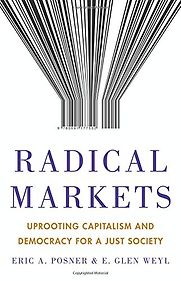
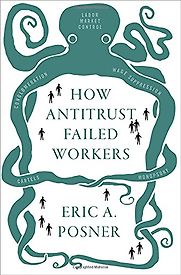
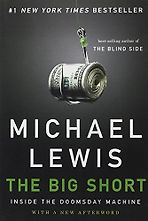

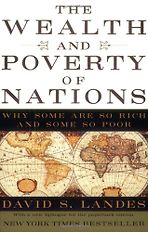
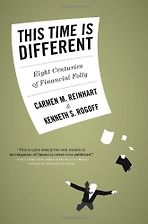
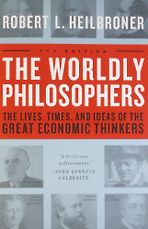

Q&A WITH GLEN WEYL, co-author Radical Markets (2018), Princeton University Press
Q: Glen, rather than going through the technical mechanisms that you set out in Radical Markets, I thought it might be better to talk about some more general themes.
Glen Weyl: Before we get started, I don’t know if you’re aware, but the book ended up launching a global social movement, and I’m now spending a lot of time doing that. I’ve moved on from being a researcher. I’m an advisor to Microsoft’s senior leaders about geopolitics and macroeconomics. So, my whole outlook has changed quite a bit as a result of that.
What I believe now is fairly distinct from what’s in the book, even though, obviously, I still think there are some great elements of ideas and technologies in there. I don’t have the same perspective that I had when I wrote the book, I’m not quite that person anymore.
Q. Can you tell us a bit about RadicalxChange and your role at Microsoft? Are these two hats very different, or are they basically the same shape?
Glen Weyl: The first thing to say is that I’m really not an academic anymore. I do co-author academic papers because there are previous collaborators of mine who are still in the academic world and want to publish academic papers and I don’t want to cut them off at the knees, but I don’t care about publishing papers in academic journals anymore. I’m not really in the academy at all anymore.
The second thing to say is that all of my roles integrate with each other and they overlap and yet they also contrast. So, at Microsoft, my job is to advise the senior leaders about geopolitics, macroeconomics and the future of technology and I draw on a lot of the experiences and insights coming out of RadicalxChange to do that. But my perspective is to think about Microsoft’s goals and interests and mission, so it’s distinct. I also lead a team there of speculative design-futurist types, who try to imagine a different future for technology, that’s less about AI and human replacement and more about complementing and enhancing human creativity. That also has an overlap with Microsoft, and with RadicalxChange’s goals, but it’s certainly not at the core of RadicalxChange—it’s much more technologically oriented.
Do you have a vision of society that you would like to see? In Radical Markets, you are trying to address particular things that are wrong with contemporary society. But do you have a vision about where you want to get to and what stuff will look like?
Well, I don’t think that one can ever perfectly design the future and attempts to do so almost always make it sterile and worse than it was before. But I do think that what you can offer is certain elements that you think will be important to the future shape of things. In the same way that I wouldn’t have wanted Steve Jobs to have said, ‘Here’s precisely what the iPhone is going to be doing for you in 10 years’, but he thought that it was an important platform on which other people could build interesting, complex and diverse things.
So, I certainly have a number of elements that I think are going to be critical, and maybe even necessary, if we want to have a hopeful future, but because that future will be pluralistic and diverse and bring in all sorts of different perspectives, it’s not one I can fully describe. I do love working with people on science fiction to imagine particular instantiations of one thing that could incorporate those elements.
I am very much focused on trying to give plausible, feasible, creative, positive visions of the future and not just critiques. My focus is mostly on that but, on the other hand, I don’t think we can be entirely prescriptive, either.
I do remember one thing very clearly from the book, which struck me. It’s when you’re talking about having property under constant auction through Common Ownership Self-Assessed Taxes. Part of the case you make is that it would be great to live in a world where private property ceases to be of huge importance because it could always be bought by someone else. We would have to focus our energies on other, more important things. It’s a very radical, almost an anarchist vision of the future.
My basic view is that lots of people in the cultural-theory world talk about Hegelian synthesis and dialectics, but they almost never practice it. They spend all their time just denouncing neo-liberalism.
And what we actually try to do in RadicalxChange and in this book is genuinely practise Hegelian synthesis, to take very seriously both sides of the dialectic in many of these debates and actually to produce something that could be the seed of a new paradigm. And reducing the importance of private property is one element of that, but moving beyond the standard ways that democracy works is another element. One way I like to express it is that we tend to view democracy and markets as opposing, checking forces, based on opposite principles and RadicalxChange tries, instead, to say that, in order for democracy to be successful, you must incorporate markets in the core of how it operates. In order for markets to be successful, democracy must be at the centre of how markets are organized.
Can you talk a bit about your intellectual roots? You mentioned dialectics. I know you were a socialist for a while. I think you may even claim still to be one, I’m not sure. But you were also a devotee of Ayn Rand for a while. Are these the two poles of your own internal dialectic?
Yes. That’s one dialectic. There’s also a dialectic between the fact that I spent a lot of time as an on-the-ground political organizer, but also as an intellectual economist in an environment that has more scorn for politics than for just about anything else. I was a consummate technocrat and I was a rabble-rouser. I’ve been both of those things. The way we make progress is by seeing both sides of things.
Audrey Tang is someone very central to the RadicalxChange movement. She’s the Digital Minister of Taiwan. Someone recently asked her where Taiwan was going as a nation and she said, ‘Well physically it’s going up because it’s at the continental shelf between Asia and North America and the friction between those is constantly causing Taiwan to rise inches every year. It also causes earthquakes and Taiwan benefits from those earthquakes because it takes the best of the shelves, the best of the ideologies and it rises.’ And I think that that is what RadicalxChange is doing as well.
Could you tell us how RadicalxChange started and what it’s doing in terms of its advocacy and engagement?
RadicalxChange was inspired by the book. Basically, what happened was that there was just a bunch of people who had read the book and were coming to me for advice or thoughts about how they might use some of the ideas in business or even in government. And Vitalik Buterin, who is the founder of Ethereum, had gotten really interested in the ideas—that was part of the reason all these people got interested—and said, ‘You should really have a conference to bring all these people together.’
Once I got on to that idea I started thinking the problem was that, if this is just a bunch of tech people doing something, it was going to completely fail, as it was really a social thing. I decided we needed to get a much broader range of folks and we started to bring together a team. Then people started saying, ‘We should have local groups like this.’ And, so, local chapters started up. Anyways, it’s really snowballed. It was founded in late 2018. And now we have about 100 local groups around the world. We’ve had two global conferences and we’re working with more than a dozen governments and political parties across the world.
The ideas have been used in everything from the way in which Taiwan has really become the most successful country in the world, not just in dealing with Covid, but with other recent crisis, to the way the State of Colorado is governed, to open source software funding, to the design of some of those popular video games. It’s really awesome to be doing something that is touching an increasing range of aspects of the world’s life.
Could you elaborate on what on what you’ve done with Colorado and perhaps touch on how Taiwan’s Covid response has been influenced by your work?
In Colorado we’ve done several things. First, the state legislature used quadratic voting to allocate its discretionary budget last year. And this year it moved into the executive branch, so the executive is now using quadratic voting to resolve disputes among different parts of the executive about how to allocate their resources. We have also been working locally in Colorado to disperse economic aid money using something called quadratic funding, which is related to quadratic voting, but developed after the book came out.
We’re also starting to work with them on using what was called in the book COST [Common Ownership Self-Assessed Taxes] what we’re now calling Self-Assessed Licenses Sold at Auction, or SALSAs to give out marijuana licences. Anyway, we’ve got a variety of engagements there.
In Taiwan, we’ve come to work extremely closely with Audrey Tang, their digital minister who’s just a remarkable person and, honestly, a much more interesting subject than me. She has been using quadratic voting for administering national hackathons—where people get together and try to create technological solutions to social problems.
Audrey has used quadratic voting to score those competitions and she’s also used another idea that we’re very into, called ‘data coalitions’ or ‘data cooperatives’—they’re sort of data labour unions—to organize those services. Taiwan’s response to Covid was, to a large extent, driven by these civic technology developments and they were the most successful country in the world. They had the lowest infection and death rate and the smallest impact on their economy. A lot of that was related to their harnessing of these civic technology approaches.
And have you worked with mainstream parties in Europe, the US, Australia or Japan or anywhere else, at a national level?
Yes. We’re starting to. Probably the closest collaboration we’ve had has been with the Canadian Conservative Party. There’s a woman named Michelle Rempel Garner, who is the most popular member of parliament for the Canadian Conservative Party. She represents a part of Calgary, Alberta, and—it’s ended up actually getting really slowed down by the whole Covid thing—she proposed legislation for data labour unions in the Canadian Parliament and has been working with her party on trying to use quadratic voting.
We’re also working with the Swiss Green-Liberal Party and the Liberal Party, with the German Christian Democrats, as well as the Free Democrats and with some Democrats in the United States, with the center-left party in Colombia, which is called the Green Party, and with the D66 party in the Netherlands—they’re like the Liberal Democrats in the UK, I would say. So, we’ve really been working with quite a range of political actors across much of the world.
Are there particular areas of your work, or ideas, that they tend to be particularly interested in?
Quadratic voting is probably the one that gets the most consistent interest, then the data stuff, then probably some of the antitrust-type things and probably the one that is the trickiest, but we have been making some progress on, is the stuff about property.
That last one doesn’t surprise me much. Are you happy with that politically-driven sequencing of things? Or do you feel there will be limitations to what you’re trying to achieve if these things are not introduced collectively or in a particular order? Is it a problem if the stuff around property and monopolies is sent to the back of the queue?
I don’t think property and monopolies have been sent to the back of the queue. The monopolies are pretty near the front and the property stuff may come later. I don’t know that it’ll come that much later, because I actually think that the urban crisis that’s happening right now because of Covid-19 may really change the dynamic there in some important ways. My general view—and this has become even stronger since the book came out—is that these are technologies and that, in a democratic society, the appropriate way for technologies to be developed is not through technocracy, where someone designs from the top down an alternative social arrangement and engineers it for everyone else. Rather, the role of a designer is to offer, humbly, designs to be deployed by the social sector, which then actually finds the recombination of them that is most valuable.
I’m quite confident that that will eventually incorporate the ideas around property as well, because I think they have great merit. I may not have presented them in the most effective or compelling way and my own views about the precise ways in which they would be most useful have evolved as well.
When you say that you’ve moved on from the book in terms of your own thinking, specifically, where are the major areas where you’re thinking has shifted?
Fundamentally, I think that the book tries to take really seriously and take further some of the ideas that have grown out of economic theory, related to questions of public goods, and collective value. But the problem is that economics, at a fundamental level—in a way that I didn’t fully incorporate when I was thinking about writing the book—is really premised on ignoring collective value. That’s really central to the whole structure of economics. So, the mechanisms that come out illuminate what’s missing from the standard framework. And they are themselves really interesting technologies, but they ultimately call into question their own foundations.
Let me try to give you an example. Quadratic voting is all about public goods. It takes the sum of the square roots of the tokens that an individual contributes, which is to say that it views all individuals as equally spaced atoms, each making some monetary contribution and then that becomes a collective thing. But the thing is that, of course, if public goods are prevalent in life, that will never be the case. Me and my wife are not two equally spaced atoms, spaced as far apart from each other as I am from you, or I am from someone in South Africa. We are not quite the same person, but we’re much closer to being the same person than we are to being completely distinct entities. You know what I mean?
So, once you take public goods really seriously, you have to recognize that public goods account for most value and, as a result, the actual nature of conflicts that arise between people is not about reconciling all self-interest with the public good, but rather about reconciling the pluralistic interests of different groups of people, which end up constituting individual interests in a partially overlapping way, with other people who have different sets of interests. The mechanisms in the book don’t do that. I think they’re a very important and concrete and powerful step beyond capitalism and the nation-state and that silly dichotomy, but they’re really just a start in a process of trying to move towards social systems that are truer to the richness of our shared lives.
The inequalities of contemporary societies is one of your targets in the book. I’m assuming that’s still a target.
Let me nuance that. I’m not sure that inequality the way it’s usually constructed is the best thing to focus on. Increasingly, my view is that the fundamental problem is that most value is collective. And I don’t mean globally collective in a vague way—that it’s all contained in the whole world. I mean that there are lots of groups where it’s actually the group, not the individual involved, that creates the value and that most of the problems of inequality are not fundamentally problems about some sort of economic inequality, but problems of treating that collective value as being the private property of some individual, which it’s not. What that ends up creating I don’t think of, even primarily, as economic inequality because money itself, the whole basis of talking about and measuring income, is fundamentally missing a lot of what’s going on, which is that people have to have more equal voices in, and more collective governance of, the collective value that they create.
I’m not saying I don’t think inequality is pointing at something, but I increasingly think that the standard ways in which economic inequality is thought of and measured is not a very helpful way to frame things.
And when you’re talking about value being more of a collective thing are you thinking about the growth of enterprises like Facebook, where the customers for services are also the suppliers of valuable data, or are you thinking just as much about traditional businesses where employees don’t earn something commensurate with their own contribution? Or are you thinking about activities altogether less business-related and more societal?
All of the above. The really fundamental principle we should always keep in mind is what I would call self-government, which is that when there is a collective value, or a collective need created, the people whose needs that addresses have to be the ones who govern the way in which those are addressed. It’s not enough for them to just choose among options determined by others. They have to actually be able to shape the options that serve them. Corporations violate that principle because they make private property the collective world we live in. On the other hand, I also believe that nation states violate that because nation states assign to a fixed and historically arbitrary polity control over a range of issues that usually concern only a subset of that polity, or often a superset of that polity. And, as such, they also stand in the way of self-government. So, I think we need to move, understanding both the strengths and limitations of existing institutions, towards a world where we supersede those very limited mechanisms.
You’ve achieved extraordinary things over the last couple of years with RadicalxChange. What will you be focusing on in the next two years?
There’s a really critical opportunity that we have at RadicalxChange—or maybe I should even say ‘calling’ rather than ‘opportunity’, as it’s not necessarily something we would want—which is that the western liberal democracies really had a catastrophic experience with this pandemic. They lost huge numbers of their population. They lost a huge amount of GDP—the latest projections suggest that the US may lose 20% of its GDP over two years. It really is a catastrophic outcome. East Asia and Australasia did far far better. They basically lost almost no one and suffered very limited economic damage. The narrative that that’s going to lead to is one that the Chinese government is going to be very happy with.
Get the weekly Five Books newsletter
But, I think that there’s an alternative narrative and I think it’s our mission increasingly to tell that, which is that, within Asia, the most successful country by far was Taiwan. Taiwan lost a hundred times fewer people per capita than China did—and that’s even assuming that you believe the Chinese statistics. And they lost less than half as much of a fraction of GDP as China did. And they did it using these types of ideas. And, by the way, within Europe the country that did the best is the country that’s closest to our ideas, which is Estonia.
So, I think that there’s a very clear lesson here, which is that we have been incredibly arrogant in the West in how we think about ‘the end of history’, that we don’t have to keep evolving our social systems. And there are models out there that actually work and that have actually been making the kind of progress that we need to make. We need to learn from those. And we need to evolve the way we govern ourselves because, if we don’t, the alternative is bureaucratic authoritarianism in the style of the Chinese Communist Party. So, our focus is on telling that story and showing the world that there is a better way and that there is a way to formalize and transfer it to other geographic locations.
It’s a story I really believe can appeal across the political spectrum because the right is very upset about China and, to a certain extent, about Russia. And Estonia and Taiwan are on the bleeding edge of those conflicts and they’ve been incredibly successful in resisting. The left is all about Occupy and Taiwan’s digital democracy emerged from their version of the Occupy Movement, except Taiwan’s actually worked. And it’s led by Audrey Tang, who’s a leftist anarchist. And the story appeals to the center because they’ve actually managed to conquer the real issues we face, like Covid and misinformation and global warming. So, I think we have a very compelling story to tell about how we’re missing the boat on real growth in our social systems, and we need to fix that urgently.